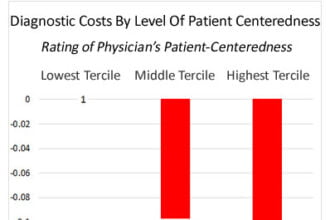Nurses play a critical role in the healthcare field—one which spans beyond treatment procedures and technicalities. A nurse’s bedside manner is just as important to their career as their efficiency in treatment, since failure to provide the first will usually result in a resistance from the patient regarding the latter. Nurses must always remember the impact their presence has on their patients, and it’s helpful to keep these four core principles of patient care in mind while on the job.
Respect for Patients and Their Preferences
Nurses play a critical role in the healthcare field—one which spans beyond treatment procedures and technicalities. A nurse’s bedside manner is just as important to their career as their efficiency in treatment, since failure to provide the first will usually result in a resistance from the patient regarding the latter. Nurses must always remember the impact their presence has on their patients, and it’s helpful to keep these four core principles of patient care in mind while on the job.
Respect for Patients and Their Preferences
Being a nurse means being adaptable. A nurse must understand that every patient is different and may be comfortable with some things that others are not, and have their own preferences with how they’d like to be treated. A good practice is to walk patients through any interactions step-by-step in order to get a feel for what their comfortable with, and directly ask about how they’d like certain things to be done beforehand to avoid any conflict or risk upsetting them.
Coordination
Many patients are already in compromised situations that leave them feeling vulnerable and out of control, and a nurse who struggles to efficiently coordinate all of their necessary job tasks can exacerbate these feelings. A nurse must always be able to provide frontline patient care with clinical and support services to ensure that patients feel secure and comfortable emotionally and physically.
Communication
Patients have expressed that they don’t feel they’re being thoroughly informed about the condition of their health or its prognosis. A nurse may see something on their chart and instinctively want to breeze through treatment, but patients are oftentimes completely unaware of what’s going on. Substandard care, which a med mal lawyer says can result in injuries to a patient, can be the result of a nurse failing to communicate with the patient. Providing a refresher on their updates and answering any questions that they have authority to should always be a part of a nurse’s patient care strategy.
Emotional Support
Aside from being consistent in ensuring patients’ physical comfort levels, a nurse should also express interest in their emotional state. Patients in both hospital and clinical settings often experience anxiety, and a nurse who has been assigned to care for them should try to provide professional but genuine emotional support to help alleviate their nerves or at least provide them with a sense of comfort.
There are many other aspects to patient care that can be discussed, but these four are fundamental and apply to every nurse’s patient care practices, regardless of their location or specific job duties. A good nurse must always be communicative and coordinated, as well as show respect for their patients’ preferences and needs. Offering emotional support that’s personalized for each patient can improve a patient’s overall mindset and lead to a much happier experience for both them and the medical staff. Patient care practices for nurses are mutually beneficial and should always be reviewed and reevaluated for areas that need improvement, as doing so will create the best possible environment for the nurses and their patients alike.








